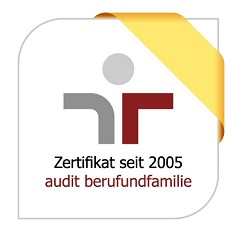Software Engineer / Bioinformatician
Reference number: 2025-0255
- Berlin
- Full-time
- NCT Berlin

“Research for a life without cancer" is our mission at the German Cancer Research Center. We investigate how cancer develops, identify cancer risk factors and look for new cancer prevention strategies. We develop new methods with which tumors can be diagnosed more precisely and cancer patients can be treated more successfully. Every contribution counts – whether in research, administration or infrastructure. This is what makes our daily work so meaningful and exciting.
The National Center for Tumor Diseases (NCT) is a long-term cooperation between the German Cancer Research Center (DKFZ), excellent partners in university medicine, and other research institutions at six locations in Germany. The goal of the NCT is to bring promising results from cancer research into clinical application quickly and safely. This approach is intended to provide cancer patients with nationwide access to innovative treatment options.
One of the six NCT sites is the NCT Berlin, which is a collaboration between the DKFZ, Charité—Universitätsmedizin Berlin, Berlin Institute of Health (BIH), and the Max Delbrück Center for Molecular Medicine (MDC) in the Helmholtz Association.
At the earliest date possible, the NCT Berlin is looking for a
The BIH Core Unit Bioinformatics provides services for efficient, reproducible, and reliable omics data analysis as well as establishing new technologies for interdisciplinary data utilization, including all necessary system and the process innovations. The position will contribute to the further development of multi-omics data management processes and application of cloud systems for data analysis, exploration, and interpretation. These activities will enable the NCT to pursue its key goals, e.g., by efficiently integrating and utilizing genomics, proteomics, and single cell transcriptomics data to support clinical studies for precision oncology and further facilitating secondary use of data from sources like the NCT MASTER study. You will be part of the NCT Berlin and the wider NCT community and will also work closely with the GHGA team (https://www.ghga.de), as well as with the Charité's pathology department and the whole genome diagnostics model project, led by Dr. Manuela Benary.
We are looking for a Software Engineer / Bioinformatician to join our team as soon as possible. This is a full-time position (currently 39.5 hours per week), based in Berlin.
Your Tasks
- Development of software for the analysis, management, and interpretation of omics data
- Selection and benchmarking of algorithms, libraries, and tools
- Development of innovative approaches for interdisciplinary use of multi-omics data in precision oncology where standard methods are not appropriate
- Participation in the further development of open-source software products, especially SODAR and KIOSC
- Presentation of results within the NCT community; participation in user support and training.
Your Profile
- Master's degree in bioinformatics, computer science, or similar required; ideally some years of post-degree work or research experience with omics data
- Good knowledge of methods for analyzing sequence data and the use of public data sources, bioinformatics databases, and file and data formats is an advantage
- Experience in research data management is a strong advantage
- Very good knowledge of software development is needed; Python, Django, and Bash are required; good software engineering knowledge is expected. Some experience with Rust, Vue.js, and databases is an advantage
- Proven experience in creating well-designed and documented source code; good knowledge of git is required; proven ability to work productively with an existing code base
- Very good English language skills
- Experience in scientific writing and publishing, very good communication skills and self-motivated team players preferred.
In addition, you will benefit from:
A modern office located in the heart of Berlin (approx. 15 minutes’ walk to the central station)
A diverse and multinational team.
We Offer
Excellent framework conditions: state-of-the-art equipment and opportunities for international networking at the highest level
30 days of vacation per year
Flexible working hours
Remuneration according to TV-L incl. occupational pension plan and capital-forming payments
Possibility of mobile work and part-time work
Family-friendly working environment
Sustainable travel to work: subsidized Germany job ticket
Unleash your full potential: targeted offers for your personal development to further develop your talents
Our Corporate Health Management Program offers a holistic approach to your well-being
Are you interested?
Then become part of the DKFZ and join us in contributing to a life without cancer!
Berit Blake
Phone: +49 30 450 564 503
Applications by e-mail cannot be accepted.
We are convinced that an innovative research and working environment thrives on the diversity of its employees. Therefore, we welcome applications from talented people, regardless of gender, cultural background, nationality, ethnicity, sexual identity, physical ability, religion and age. People with severe disabilities are given preference if they have the same aptitude.

